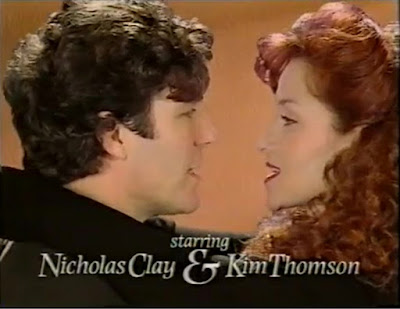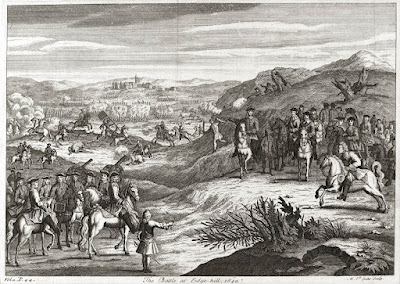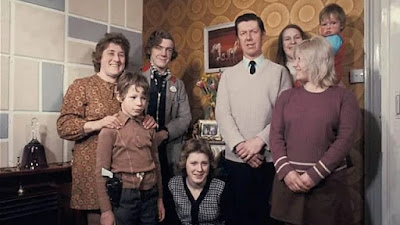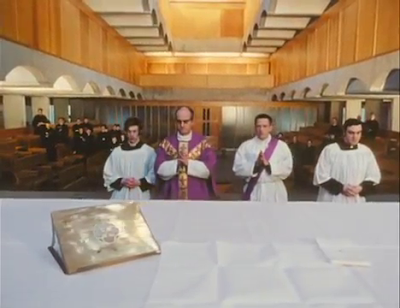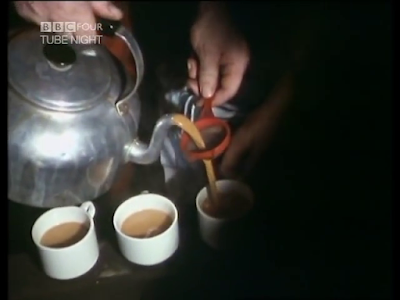Virtual Murder. A Bone to Pick

In my first post about Virtual Murder I said that it had picked up the gauntlet laid down by The Avengers. This episode is about a man, Roger Smith, who turns up to a police station on a bicycle and empties a bag of human bones over the desk. If I say that this man is dressed as Father Christmas (and played by Tony Robinson as guest star) you may be inclined to say that the show has blown up the gauntlet and turned it into a whoppie cushion and I'll tell you right now, it's glorious. I particularly like when Smith uses his one phone call to ring Cornelius and dramatically play out that the police have attached electrodes to his tongue. This is the truly bat shit crazy world of English eccentricity (which is of course completely untrue, in no way are we eccentric) and it displays a procession of eccentrics for us. We're beyond eccentricity though because Smith has been a research project because he has pseudologica fantastica, and just lies continually. Psychologically very ...
